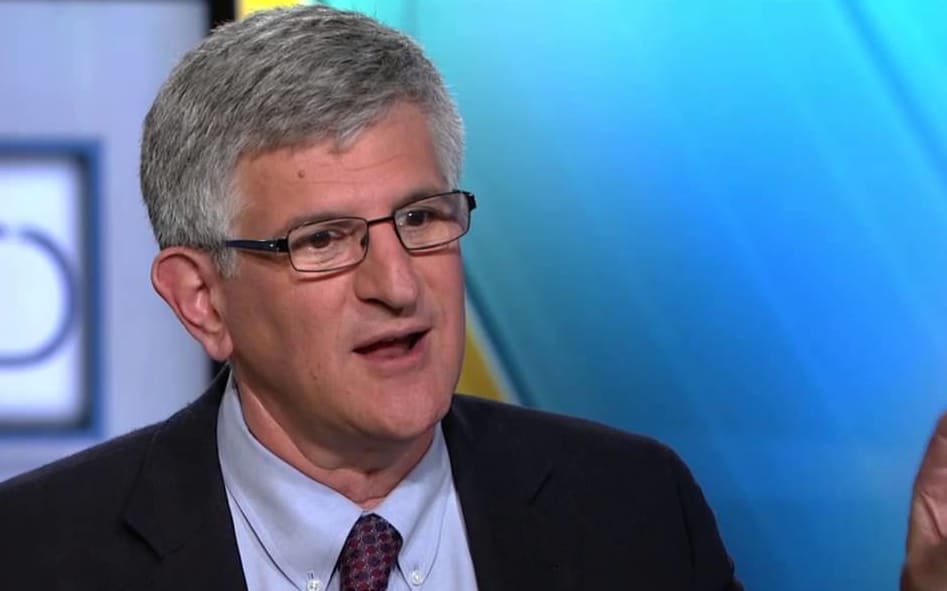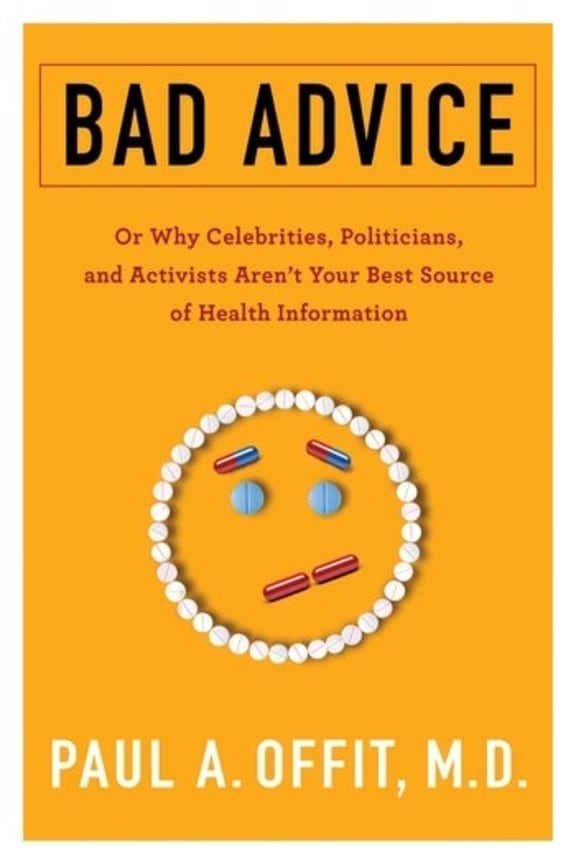It doesn't take much for an idea to turn into a belief and when it comes to health often ideas aren't just bad, they're dangerous, says Dr Paul Offit.
Offit is the co-creator of the rotovirus vaccine and director of the Vaccine Education Center at Children's Hospital of Philadelphia.

Dr Paul Offit Photo: YouTube
When claims were made that vaccines cause autism about 10 years ago he was in the crossfire, presenting science that showed no such link.
Dr Offit tackles the phenomenon of science-denial in his new book Bad Advice or Why Celebrities, Politicians, and Activists Aren't Your Best Source of Health Information.
We rely on science and technology every day, yet these subjects are barely covered in the media, he says.
"If you watch the news you'll be hard-pressed to find any information about science and technology - in the US it's all politics, all the time."
When scientists do get access to the media, they are constrained by the scientific process.
"Scientific training is the opposite of media training, you are taught if you're a good scientist you stick to the data and don't say anything beyond what your data allows you."
He says scientists formulating a hypothesis always frame it in the negative - known as the "null hypothesis". This is problematic when scientists are communicating to the public, because science can't prove a negative, he says.
"Technically you can never say 'MMR doesn't cause autism', you can only say those two things were or were not associated to a certain level of statistical power. That doesn't play very well in terms of a sound bite.
"You sound like you're waffling, or worse, you sound like you're covering something up because you're being true to the scientific method, but on the other hand you're just confusing the people that are listening to you."
Into this vacuum steps the likes of Andrew Wakefield, Deepak Chopra and Linus Pauling, who set themselves up as all-knowing, doubt-free experts.
"Religion is a belief-based system. You have to believe that there is a supreme being, you have to believe that Jesus is the son of God; that Moses parted the Red Sea - all of those violate what we know as natural phenomena."

Photo: supplied
He says science is instead an evidence-based system.
"Scientists get it wrong all the time, that's the nature of the process. It's fair to be sceptical. What upsets me is when people are cynical."
He says truths emerge from the build-up and reinforcement of knowledge.
"Gravity is a fact, climate change is a fact, evolution is a fact; you can't deny 200,000 years of fossil records and try and support a creationist hypothesis."
So science can get it wrong sometimes, but the very same process will eventually right that wrong, he says. The problem is, people point out past scientific mistakes - lobotomies, thalidomide, cold fusion - and dismiss science in its entirety because of it.
He says it's bad science that does jump the fence - the therapeutic effect of vitamin C is an example.
"I blame Linus Pauling for all of this, when he wrote Vitamin C and the Common Cold he launched the notion that vitamin C could either treat or prevent colds.
"Those studies have been done over and over again: it just doesn't happen.
"You are at no greater or lesser risk of getting a cold if you take vitamin C, you don't get better any faster if you take vitamin C, but it's just launched this belief system and then he doubled down and said it can treat cancer."
Anti-science types come from both left and right, he says.
"With anti-vaxxers on the left it's the bib-overall, granola-crunching, natural-is-good crowd on the right, it's the libertarian 'get the government off my back, I don't want vaccines mandated' crowd."

